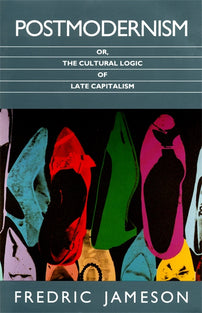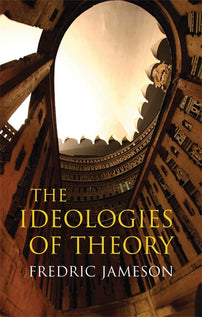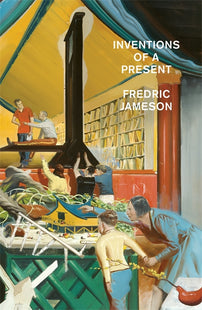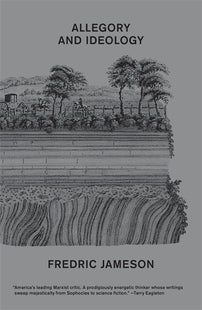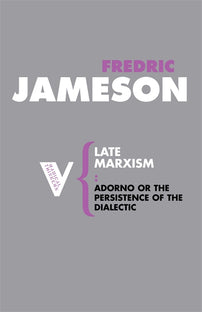Utopia Hurts
Christian P. Haines reflects on Fredric Jameson's The Seeds of Time and the painfulness of utopia for our Jameson at 90 series.

History hurts, but so does utopia. How could it not hurt? If utopia is more than mere wish-fulfilment, if it’s also a social practice, the imagining of some other world out of the raw materials of this one, then it’s going to hurt—there’s pain in tearing away from the conditions of the present. There’s a “necessary price to be exacted, not so much for the construction of Utopia as rather for the sheer imagining of it” (106). Suffering belongs to the utopian imagination, because concrete utopianism, the illumination of real social possibilities, means reckoning with the social pathologies of the present: “Therefore, if one wishes to avoid thinking about suffering and misery, one must also avoid thinking about the Utopian text, which necessarily carries their expression within itself in order to constitute the wish fulfilment of their abolition” (102).
These words come from Fredric Jameson’s The Seeds of Time (Columbia UP, 1994), a book based on lectures delivered in 1991 as part of The Wellek Library Lectures in Critical Theory. Coinciding with the publication of Postmodernism (Duke UP, 1991), Seeds of Time constitutes a supplement to the theory of postmodernism, less a summing up than an unstitching: loosening the tight-knit threads of the postmodern fabric to reveal the remainders, alternatives, and constraints hidden in the glare of neon lights, in the metallic folds of a Gehry building.
[book-strip index="1"]
There are two central conceptual moves in Seeds. The first is that of feeling out the walls of the postmodern box in which we’re locked: the act of systematizing postmodern styles as responses to specific material problems and constraints, so that they read as symptoms of the global situation. This closure may resemble Weber’s infamous iron cage, but Jameson insists that postmodern theory is “a telling of the future, with an imperfect deck” (xii). This is the dialectic as science fiction: the recovery of the futurity submerged in the present. To press up against the limits of the situation, to trace the edges of late capitalism, means acknowledging the system’s finitude, “suggest[ing] an outside and an unrepresentable exterior to many of the issues that seem most crucial in contemporary (that is to say, postmodern) debate. The future lies entangled in that unrepresentable outside like so many linked genetic messages” (xiii).
Jameson’s other move in Seeds is a kind of utopian therapy—not reconciliation with the present but the analytical act of breaking through the neurosis of postmodern repetition (the endless parade of styles for style’s sake; the addictive pleasure of immediacy, as Anna Kornbluh’s recently rebaptized our situation). It involves “grasp[ing] once more what is omitted from the postmodern worldview, or better still, what had to have been repressed from it with some new violence in its own right, for that ‘worldview’ […] to come into being in the first place” (xvii). What’s repressed is utopia, that combination of pain and pleasure, of jouissance, “a kind of desiring to desire, a learning to desire, the invention of the desire called Utopia in the first place, along with new rules for the fantasizing or daydreaming of such a thing” (90). Jameson’s discussing Andrei Platonov’s early Soviet novel Chevengur (1927-1928), an example of modernism and socialist (or Second World) culture. Platonov’s characters are oddballs and misfits. They long for socialism, finding and refinding it in the ordinary and the bizarre—in a wooden frying pan, for example—“as though the Utopian also were anamnesis, the deep recovery of what is both forgotten and known since before birth” (96).
[book-strip index="2"]
Utopia isn’t the happiness at the end of the rainbow. Nor is it the solution to all our problems. It’s the lost object of desire, Lacan’s objet petit a, but instead of belonging to the patient on the couch, this “psychopathology of the Utopian impulse” is “the collective expression of need in the most immediate form rather than some idle conception of the perfect” (101). Need is raw. It’s raw not in the sense of being simple in form or self-evident in satisfaction but rather in the way it draws the imagination back to bodily life and its material conditions. This is utopia as a process of recovering possibility from the urgent, often terrible realities of daily life—“the reality principle that all genuine fantasy must awaken if it is to be daydreamed in the first place” (106). Not a blueprint of the future but the seeds of time.
Let us learn to suffer utopia! Let us learn to appreciate its pains, as well as its pleasures! In my work, I’ve followed the utopian impulse through US literature and speculative fiction, paying attention less to imaginary places than to the sparks of futurity thrown off by fictional and poetic representations of struggles. I’ve argued for utopianism as “less a matter of the good place than of life, transformed utterly.” In The Political Unconscious, Jameson famously writes: “History is what hurts, it is what refuses desire and sets its inexorable limits to individual as well as collective praxis.” Yes, of course, but utopia hurts, too. It hurts because change hurts, especially radical social change. It hurts because utopia is born not just of desire but need. It hurts because, perhaps “due to some weakness in our imaginations,” “it seems easier for us today to imagine the thoroughgoing deterioration of the earth and of nature than the breakdown of late capitalism” (xii). In her award-winning novel, The Fifth Season, N.K. Jemisin phrases this utopian imperative to reckon with pain sharply: “Perhaps you think it wrong that I dwell so much on the horrors, the pain, but pain is what shapes us, after all. We are creatures born of heat and pressure and grinding, ceaseless movement. To be still is to be ... not alive.”
See all works by Fredric Jameson here. His new book, Inventions of a Present: The Novel in its Crisis of Globalization is out on May 7.
[book-strip index="3"]

